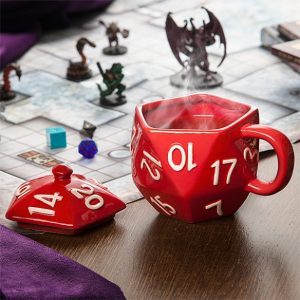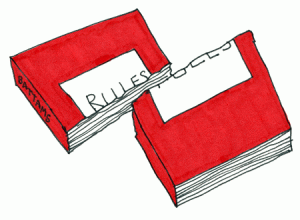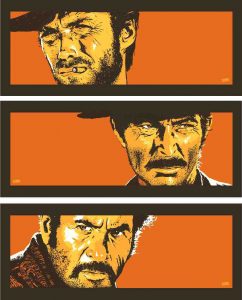Actually About Home Brew Rules this time!
It has been brought to my attention that my previous article was more about House Rules than Home Brew, so in an effort to redress the balance, I give you:
HOME BREW:

At its heart home brew is building your own system from scratch, rather than using a published system.
There are many reasons for doing this, including being unable to find a system that suits your needs, to wanting to try your hand at Game design.
Often Home Brew systems are the outcome of a long set of House Rules, gradually altering a system, bit by bit, until it no longer resembles the original. (Rolemaster by I.C.E. was originally presented as a modular system to replace parts of D&D, until they packaged it and sold it as a single, unified set!)
In other cases, people come up with a Game Setting that does not seem to fit with an existing set of Rules, and so write their own, customised to the needs of the Setting.
Pros:
A well-written Home Brew system will be custom-designed to the needs of the Setting it is meant for, and the players who are expected to be involved. It is quite common for the Writer to know (or at least have an idea) of who will be playing, and build the World and the Rules around this expectation.
The GM can feel much more in control of a System that they have written, with the rules reflecting the expected behaviour of the World. They are not beholden to some Tome of Rules that they have been presented with, but can write the Rues to reflect the stories, themes, and atmosphere that they wish to portray.
Cons:
You have to write your own rules! To some, this is not a great problem. Some people enjoy poring over rules, producing test-cases, creating characters and situations, and seeing how the rules handle them.
Leave it to the professionals! Published Game Designers, who do this for a living, have access to time and resources that the hobbyist does not. Time and Players for play-testing, multiple other systems to compare and contrast against. Why re-invent the wheel, when decades of devout designers have refined Rule Systems to a pinnacle of perfection?
Case Studies:
The Chronicles of Ishar

Written and run by a friend of Lucretia, I joined this game in its mid-stage, with other players already familiar with the System, and the Setting, and had to find my feet quickly! Playing Mighty Heroes attempting to save The World from Imminent Destruction, we were encouraged to play high-powered, exciting characters.
The base system was similar to Savage Worlds, with higher Skill Ranks meaning rolling larger dice (d4 -> d6 -> d8 -> d10, etc), adding the relevant Statistic, to reach Target Numbers depending upon Difficulty (with some Tasks opposed by the Opponent’s roll).
My Seraphim Technomancer put all of their points into Tech and Lore, leaving irrelevant Stats such as Dex and Stamina (for the game used quite a traditional stat-line) at very low levels (I imagined this as being only semi-corporeal, being a Divine Being).
Each Class had a Web of Special Abilities, with each Node leading to bigger and better powers, giving us choices over which area to specialise in.
The game was run very loosely, with player skill being as relevant as Character abilities (We had several ‘Occasion’ Sessions, such as Hallowe’en and Xmas, where we had to solve word puzzles, play Charades, and other Parlour Games!).
Character Progression was handled in two ways:
- We gained individual XP for completing tasks, and reaching milestones, with bonuses for good play. To avoid any one PC racing ahead, when anyone was 2 levels above anyone else, the lower level PC was automatically “dragged” up to one level below them! This still gave people incentive to gain XP, but made sure no-one was left behind.
- Every time a Skill was rolled, it was logged by the GM, and after a certain number of uses (low levels requiring few, higher levels needing more), it automatically raised.
When an XP threshold was reached, you went up a level (as is traditional), and you gained a set of Points to spend freely, so frequently used skills would progress,and you could push these areas, but also had the option to broaden.
Balance was thrown to the winds, which was highlighted when some of our characters were possessed, and we attacked each other. Luckily, I faced off against our Healer, and we whiffed and wafted at each other, struggling to reach 5 points of damage, while the Amazon Warrior was calling Double Criticals on each attack, and could have killed me several times over in a single round (minimum of 50 damage!, probably treble that!)! Luckily, our Automaton could take this beating, and we survived the encounter.
Overall, the system did as required of it: gave us some rough numbers to work with, and moved out of the way when we wanted it to! This was partly down to the GM/Author using the System as he saw fit, and also off-loading a lot of the player-based side of things, for us to keep track of.
Fates Worse Than The Apocalypse

Apocalypse World has been hacked to more settings than I can count (at least 4!), so I jumped on the bandwagon, and found a way to convert it to my current favourite setting, Fates Worse Than Death.
Playbooks were easy to formalise: each gang gets their own, with Moves based upon the areas that they usually have low Skill Costs for.
‘Full’ details are available here, but to summarise, I found converting the base mechanics very easy. What I did struggle with was the “Ask the players, accept their answers” ethos, as both myself and my players are used to the GM designing the Setting, and the Players not being able to Define it.
This is always a problem with converting a System. You may be able to make parts of it work, but other parts need some serious effort to fit them in.
Heart Breakers
From the earliest days of D&D, through to the latest releases, people have tried to write their own games. Some have been very successful (in relative terms), such as the aforementioned RoleMaster, and also RuneQuest. Both are examples of how to write “Not D&D” properly. Many others have not been done as well …
“Fantasy Heartbreakers” has become an accepted term for games that try to emulate D&D, but with their own special twist, or a “new take” on certain parts of the Rules. The pertinent point being that they never became successful (usually due to being too derivative), and broke their creator’s heart.
I posit that most Home Brew systems would fit into this category, if they were to be published in earnest. If your pitch (to the RPG industry) starts “It’s like D&D, but …” then unless you follow up with a VERY impressive idea, it will be a Heart Breaker.
Check out BoardGameGeek for some examples, including Fifth Cycle, Legendary Lives and NeverWorld.
Keeping it Real
LARP (Live Action Role play), or “dressing up and hitting each other with rubber swords”, has always been the red-headed step-child of TTRPG, but occasionally produces some interesting ideas.
Our local group produced its own Rules and Setting: “Dead Oasis“*. Set in an isolated City (the “Oasis”), it had an interesting Skill Progression system, that nods to the AD&D Monk and Druid ranks.
You could move through the main Ranks (Novice, Journeyman, Professional, Master) by spending your XP, but there was only ever ONE Grand Master of each Skill in the Oasis. To reach this Rank, you had to challenge the existing Grand Master, and defeat them (knocking them down to Master, and taking their place).
LARP is a difficult area to work with, as the constant conflict between “Staying in Character” and “adjudicating the Rules” can be major problem.
Summary
The main difference between Published Rules Systems and Home Brew is the “Published” bit. 99% of Home Brew content never makes it as far as the local club, never mind wider access. And this is probably for the good. Those pieces that do make it out into the wild will rise or fall depending upon many factors, of which only one is Quality (although there is a lower-bar, that if it doesn’t reach, it will never succeed).
*unfortunately, very little evidence survives of Dead Oasis. I believe my house-mate has a treeware version of the rules somewhere …





